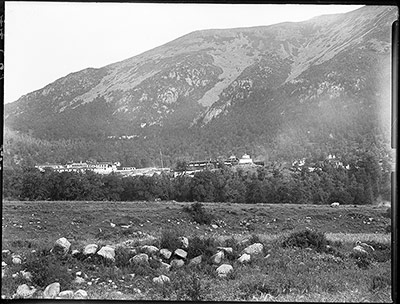
1998.286.228.1 (Glass negative)


1998.286.228.1 (Glass negative)

Sir Charles Bell or Rabden Lepcha?
Sir Charles Bell
August 29th - September 3rd 1921
Rongchu Valley Region > Reting
1998.286.228.1
78 x 103 mm
Negative Quarter Plate
Donated 1983
St Antony's College, Oxford
Lantern
Sir Charles Bell's Mission to Lhasa 1920-21
Q.215
BL.Q.215
British Library, Oriental and India Office Collections
Manual Catalogues - Bell's List of Illustrations entry: "[No. of chapter] XLIV. [Subject of Chapter] Reting [Subject of Illustration] Q215 (edu) Ditto. [see H 236 (e):General view of Re-ting Monastery. On left the administrative part (Labrang), where we were lodged. In centre the monks dwellings On right the building containing the main chapels, assembly halls etc. On extreme right are more dwellings for monks]. [Remarks] L.226a"
Contemporary Publication - Published in 'The Religion of Tibet', Bell, C. A., Oxford: Clarendon Press, 1931, facing p.198:"Re-ting Monastery, general view"
Other Information - Description: Bell's Diary for 29th August 1921:"Ra-dreng [ Tibetan script ] is 13 miles from Phon-do, and lies at an elevation of 14,000 ft in a wood of juniper trees, which grow to a height of 50 or 60 ft. Their height and and thickness and the large number of them excite wonder and admiration among the Tibetans who come here, and I myself have never seen juniper trees of such size growing at so high an elevation. The monastery and wood face south and the climate is surprisingly warm, when the altitude above sea-level is considered. // Two of the priests in charge of the monastery, who look after us, tell me that King Song-tsen Gampo visited this place. Cutting off his hair, he strewed it on the ground and prayed that timber might be provided for him to build a temple ( tsuk-la-kang ) here. In answer to this prayer these trees sprouted from his hair. Some three hundred years later Atisha's disciple. Drom-tom-ba (spelling?) built the temple and monastery. // The priests say that the trees have never been cut since Songtsen Gampo time, and are consequently 1200 years old. they certainly appear to be of great age. Many are withered at the tops, while others are quite healthy. It is not allowed to cut or lop them, but when pieces are broken off by snow, wind etc., these can be utilised." [Diary Vol. XII, pp. 48-9]
For Citation use:
The Tibet Album.
"Reting Monastery"
05 Dec. 2006. The Pitt Rivers Museum.
<http://tibet.prm.ox.ac.uk/photo_1998.286.228.1.html>.
For more information about photographic usage or to order prints, please visit the The Pitt Rivers Museum.
© The Pitt Rivers Museum